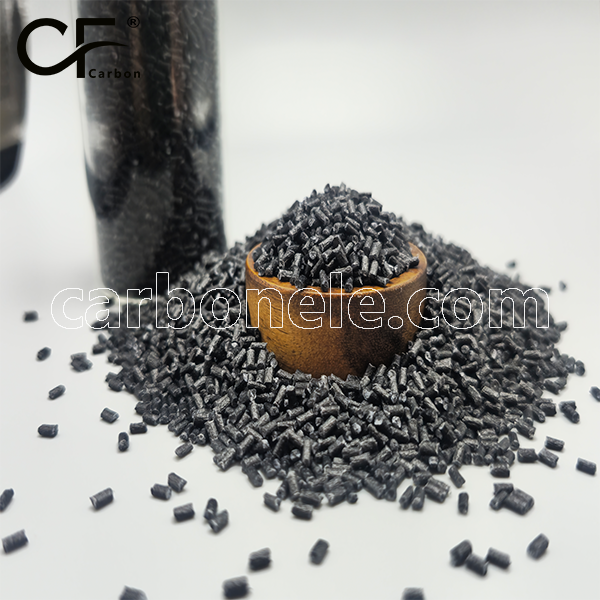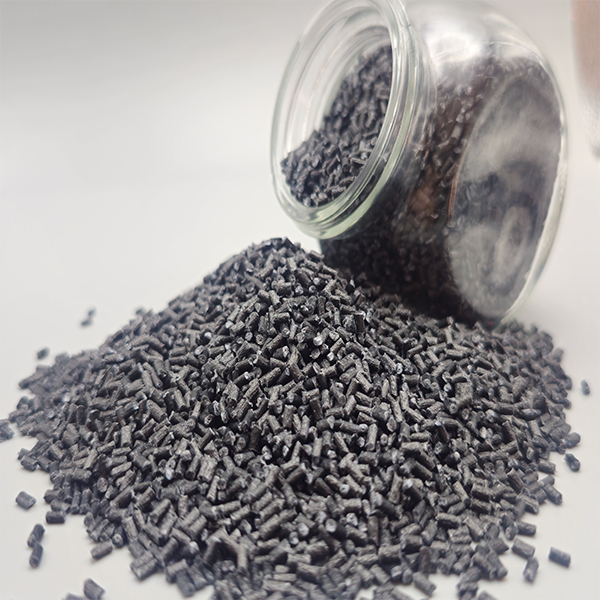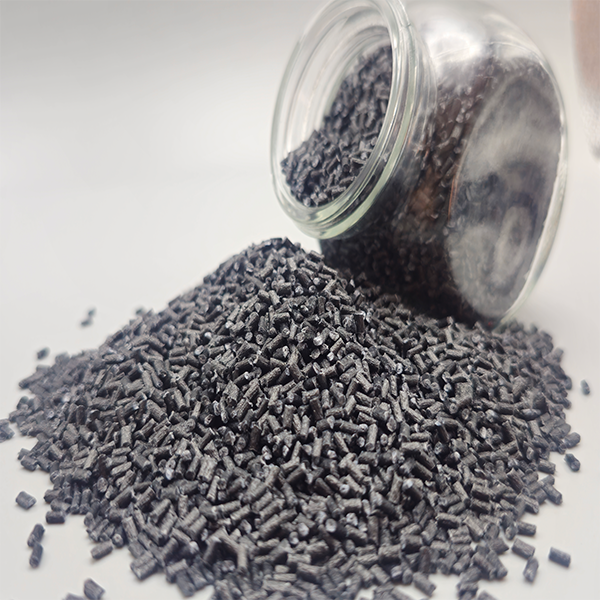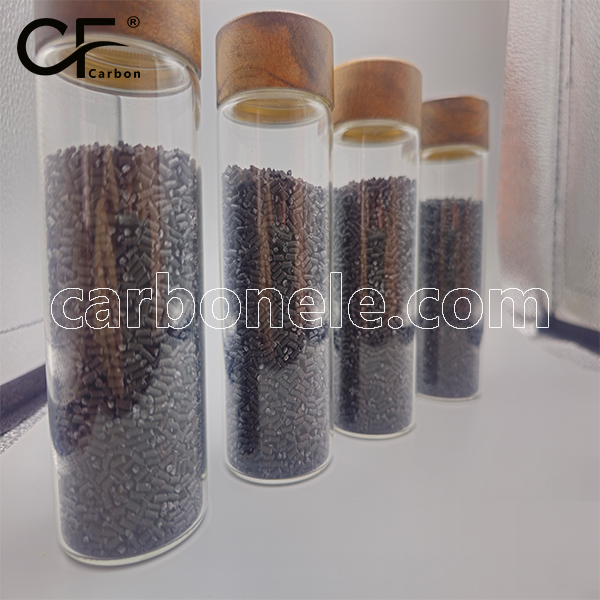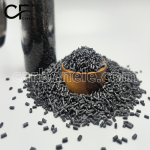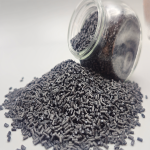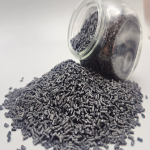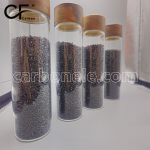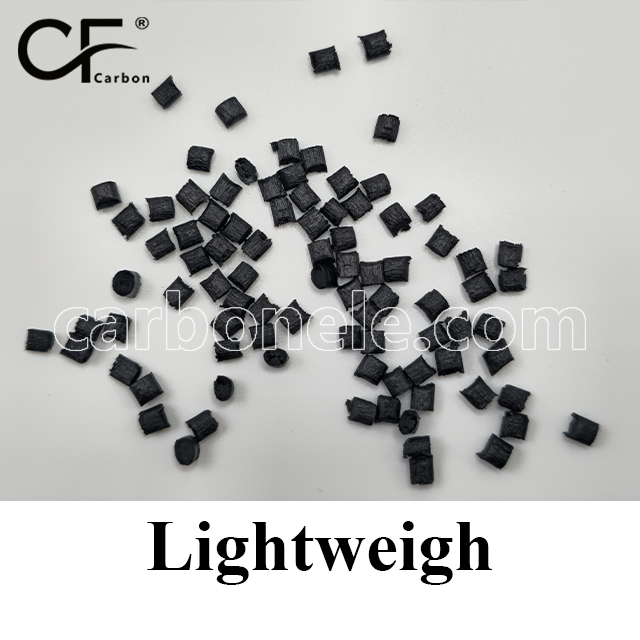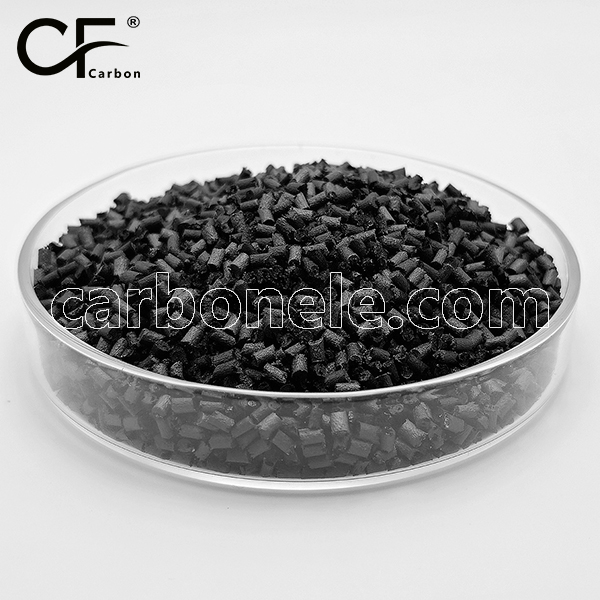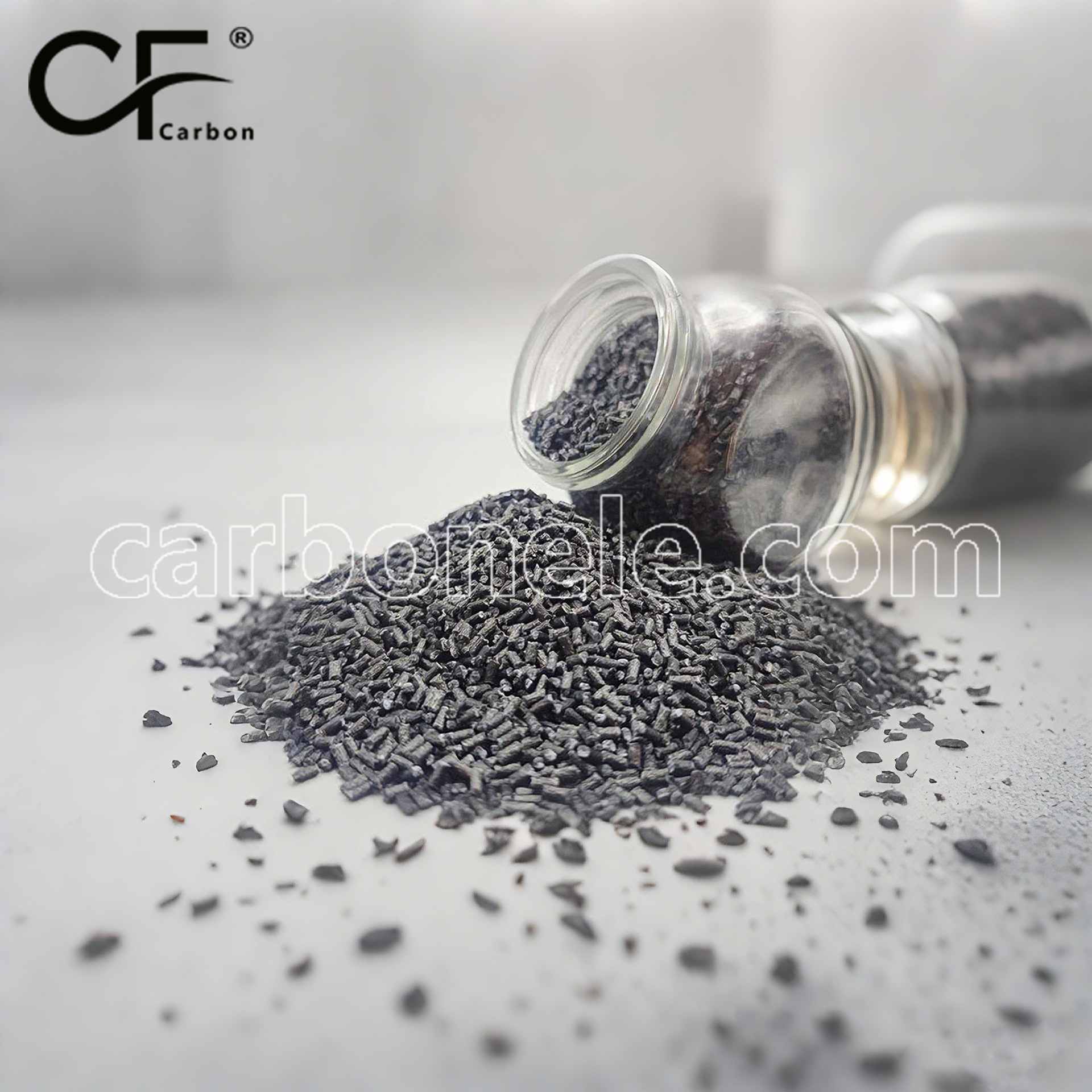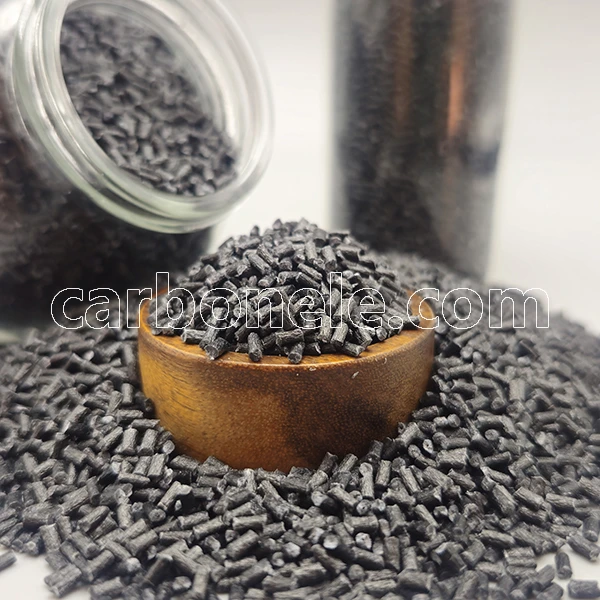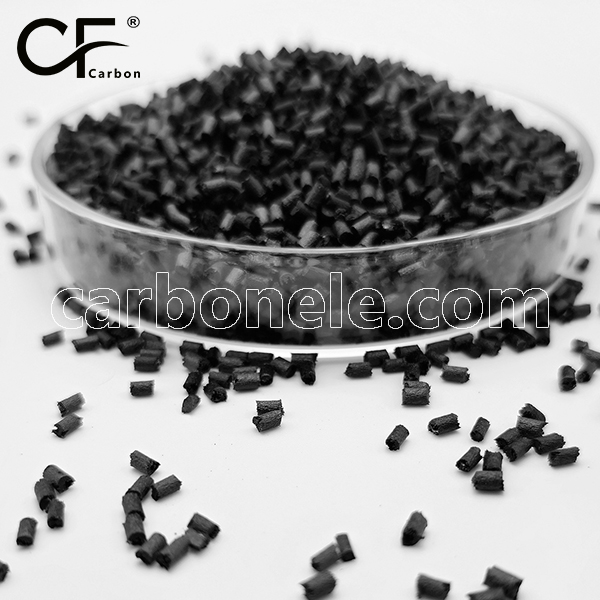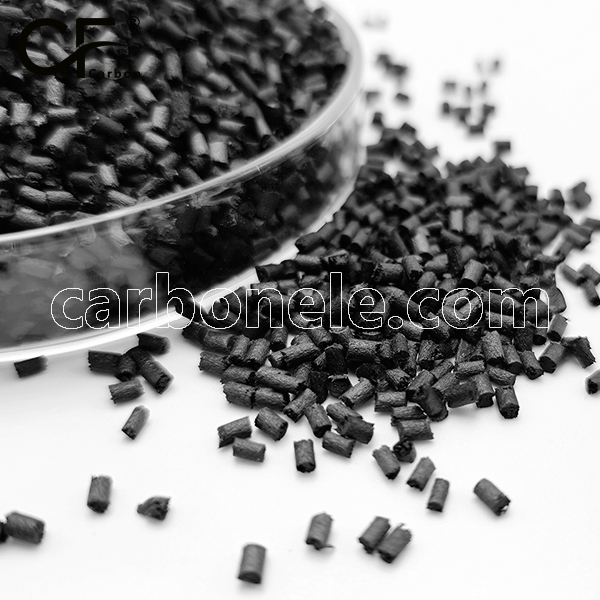
ABS CF30 Granules For 3D FGF Printing
ABS-CF-30 is a high-performance composite material combining ABS polymer with 30% carbon fiber reinforcement, delivering exceptional mechanical and thermal properties:
1.90MPa tensile strength (200% stronger than pure ABS)
2.7GPa flexural modulus for structural load-bearing applications
3.110°C HDT (35% higher heat resistance vs. standard ABS)
- Model number: ABS-CF-BCA3
- Matrix Resin: Acrylonitrile Butadiene Styrene (ABS)
- Reinforcing Filler: Carbon fiber (30%)
- Appearance: Granules
- Packaging: 25kgs/bag
ABS CF30: Material Composition & Key Features
ABS -CF-30 is an engineered pellet composite for Fused Granulate Fabrication (FGF) 3D printing, combining ABS polymer with 30% carbon fiber reinforcement. The material delivers enhanced mechanical performance with 90+ MPa tensile strength and 7+ GPa flexural modulus – doubling the performance of standard ABS. Its optimized 2-4mm granular structure ensures smooth material flow during high-throughput extrusion processes.
ABS CF30: Performance Advantages & Industrial Applications
The 30% carbon fiber reinforcement in ABS -CF-30 provides critical advantages including ultra-low 0.3% shrinkage and elevated 110°C heat deflection temperature (HDT). Combined with extrusion rates up to 1.5 kg/h, these properties make ABS CF30 the ideal choice for producing functional prototypes, automotive parts, and aerospace components that demand exceptional structural integrity and weight reduction.
What is the composition of ABS CF30?
ABS CF30 is an engineering-grade composite material composed of acrylonitrile butadiene styrene (ABS) polymer reinforced with 30% carbon fiber content. This formulation achieves an exceptional strength-to-weight ratio with a density of 1.2g/cm³, making it ideal for structural applications requiring lightweight durability.
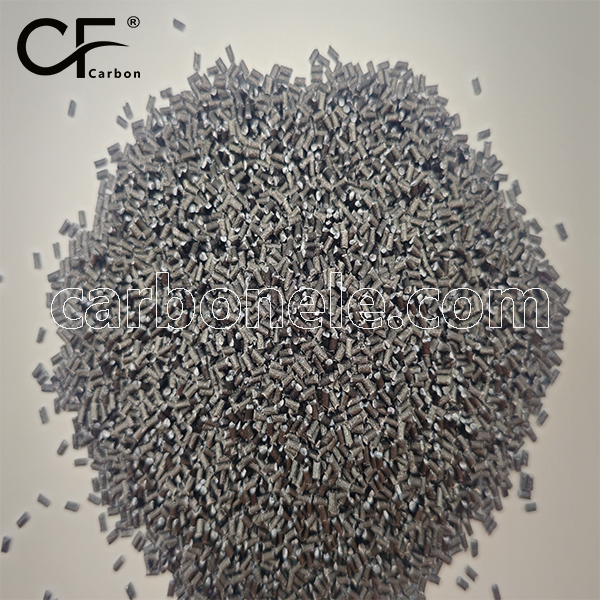
In what applications is ABS CF30 used?
Automotive structural components (brackets, housings) 1.Industrial tooling and jigs 2.Drone frames and aerospace prototypes 3.High-strength 3D printed functional parts 4.Robotics and automation equipment
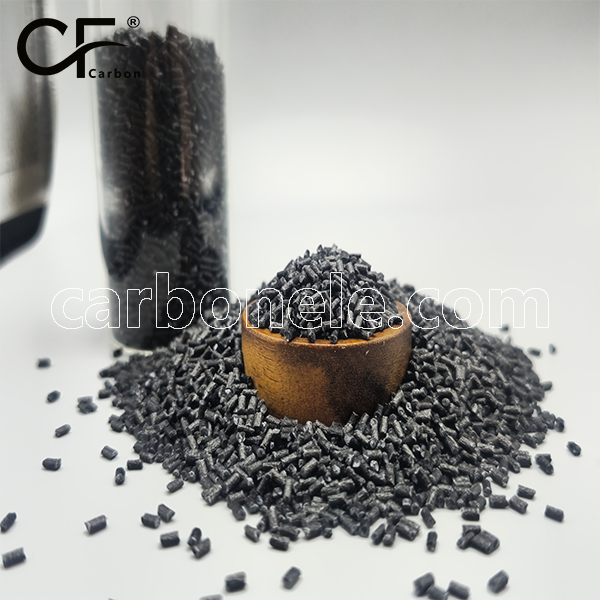


Frequently Asked Questions
Carbon (Xiamen) New Material Co., Ltd. aims to provide buyers with "one-stop" worry-free high-quality services. Here you can find all information about carbon fiber engineering plastics. If you still have questions, please send us an email for consultation!
-
How can I contact the manufacturer of a product that interests me?
When you find a product you are interested in, you can contact the manufacturer directly by sending an email and we will get back to you as soon as possible.
-
How do I find the products that interest me?
All you need to do is enter the keyword, product name in the search window and press the Enter key on your keyboard. Your search results page will then be displayed. You can also search within the product category pages on the home page. Each category is divided into subcategories, allowing you to refine your search and find products that interest you.
-
Where will I find a buying guide?
Please contact our after-sales service directly and we will provide you with a comprehensive operating guide.
-
What are CF Reinforced Thermoplastic Composites?
CF Reinforced Thermoplastic Composites are materials where carbon fibers are incorporated into a thermoplastic matrix. They combine the strength and stiffness of carbon fibers with the processability and recyclability of thermoplastics. For instance, they are used in automotive parts like bumper beams.
-
What are the benefits of CF Reinforced Thermoplastic Composites over traditional composites?
The key benefits include faster production cycles, easier recyclability, and better impact resistance. They also offer design flexibility. An example is in the manufacturing of consumer electronics casings where complex shapes can be achieved more easily.
-
How are CF Reinforced Thermoplastic Composites processed?
Common processing methods include injection molding, extrusion, and compression molding. Injection molding is widely used for mass production. For example, in the production of small components for the medical industry.
-
What industries use CF Reinforced Thermoplastic Composites?
They are utilized in aerospace, automotive, medical, and sports equipment industries. In aerospace, they can be found in interior components. In the medical field, they might be used in prosthetics.
-
How does the carbon fiber content affect the properties of the composites?
Higher carbon fiber content generally leads to increased strength and stiffness but may reduce ductility. A moderate content is often balanced for specific applications. For example, a higher content might be preferred in structural parts of a race car.
-
What are the challenges in using CF Reinforced Thermoplastic Composites?
Challenges include higher material costs, complex processing equipment requirements, and ensuring uniform fiber dispersion. Issues with adhesion between the fibers and the matrix can also arise. An example is in achieving consistent quality in large-scale production.







